Ever had to attach a lift bag to an object during your dive training? Perhaps you’re just looking for somewhere to secure your hammock for a good nap after your dives. There are many practical applications when it comes to knot-tying and diving, not to mention that these skills can also be useful in everyday life. In diving, knots can help attach a load to an anchor, secure a surface marker or dock a boat. Categories of knots include hitches, stoppers, end loops or bends, to name just a few. Here’s a short list of five knots every diver should know.
 Bowline
Bowline
This is one of the easiest knots to learn, and it’s useful when it comes to securing a line around a fixed point or ring, or to create a loop at the end of a line. It can take a bit of practice to master and there are also a few ways to tie it. One of the best things about a bowline is that it cannot be undone when there is a load on the end of it, but it can be easily untied once the load is removed. Secured properly, it is a very strong knot for various purposes.
 Figure 8
Figure 8
Often use to stop a line from sliding (a stopper knot), a figure 8 knot is very easy to tie and untie. Once tied, it looks like an eight, hence the name. It has several more complex variations like the double figure 8, which can be used for tethering an object like your pencil to your dive slate.
 Sheet Bend
Sheet Bend
This knot is used to tie two ropes or lines together, which makes it very useful in everyday life, not only when diving or boating. It can, for example, be used to extend an existing line. It works with ropes of different sizes as well, and stronger versions exist such as the double sheet-bend knot.
 Square Knot (Reef Knot)
Square Knot (Reef Knot)
The square knot, also known as the reef knot, also allows two lines to be tied together very easily. To explain it simply, it is often compared to tying shoelaces. This knot itself is not the most resilient, but it is the base upon which to build a number of stronger knots, such as a granny knot or a surgical knot.
 Double Half Hitch
Double Half Hitch
Tying a few half hitches is the perfect way to tie a knot around an object, such as a torch to your BCD. To secure the load further there are endless variations of the half hitch or combination of several half hitches.
When it comes to tying knots, these are just a few of the basics. You’ll find plenty of tutorial videos online with detailed instructions. Let us know which knots you use most as a diver!


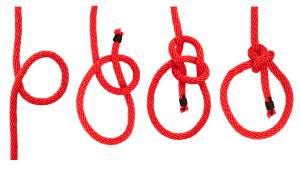 Bowline
Bowline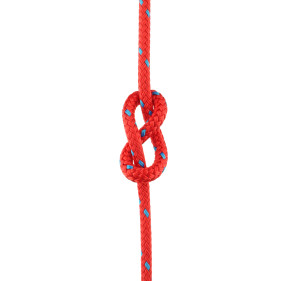 Figure 8
Figure 8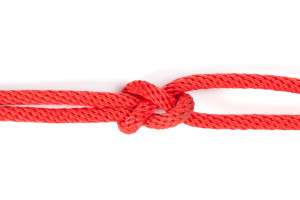 Sheet Bend
Sheet Bend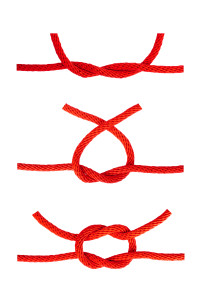 Square Knot (Reef Knot)
Square Knot (Reef Knot)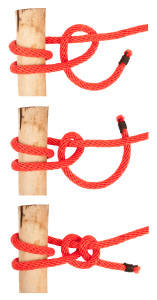 Double Half Hitch
Double Half Hitch